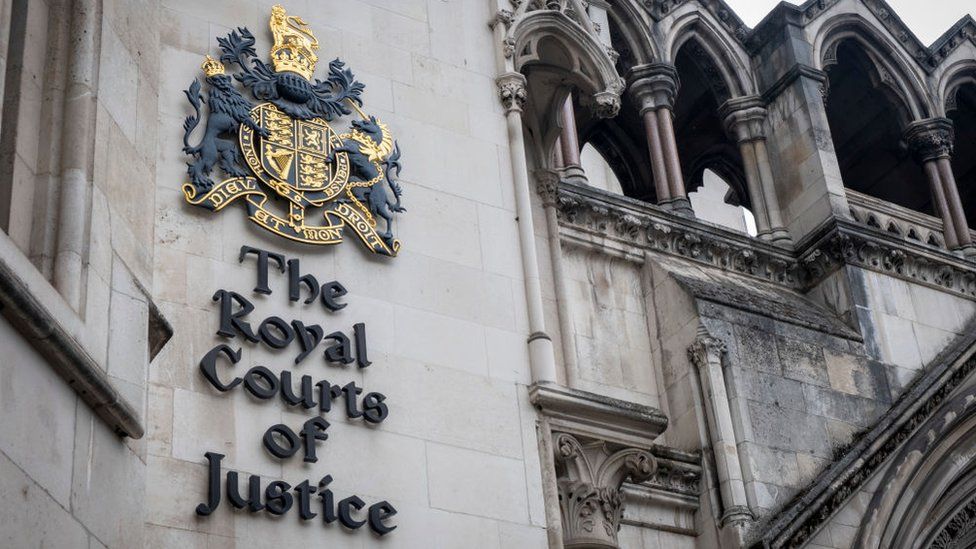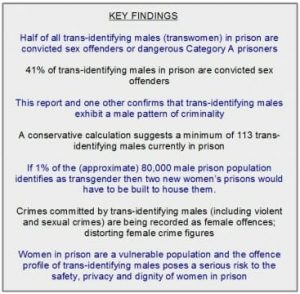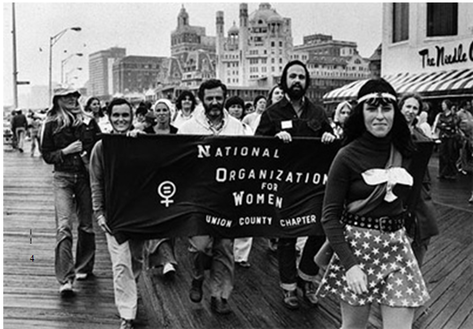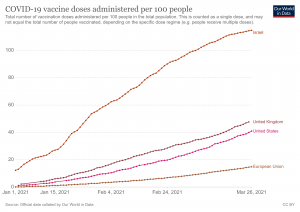I was recently told of a case where a 14 year old boy from Lancashire was charged with a ‘hate crime’. It seemed a bit young to me to be charged with this but I was intrigued and I looked further in to it. It appears that the boy having lost a bet brought the Quran, that he bought online, into his school. You might wonder why bringing the Quran into school is considered to be a forfeit but we are dealing with 14 year old boys here, so it doesn’t have to make sense to us. He ‘accidently’ dropped the book and was sent to the Head Teacher, presumably for being disrespectful to the Quran. The school called the Police. If, like me, you were expecting more from this story you will be disappointed. That’s it! Just to put some context into the story I should add that the boy is autistic. His mother, whilst apologising to a meeting of the local Muslim community said ” … that her son sometimes found it difficult to understand social situations.” (Daily Mail 02/03/23) Another bit of information was that the Quran was only slightly damaged as confirmed by the Police and that there does not seem to be any intent to be disrespectful as confirmed by the school. “Head Teacher Tudor Griffiths said: ‘We would like to reassure all our community that the holy book remains fully intact and that our initial enquiries indicate there was no malicious intent by those involved.” (Daily Mail 02/03/23)
You might be slightly confused at this stage as to how he could be charged with a ‘hate crime’ as initially reported by my friend. The answer is, that on the facts reported, which have not been disputed, he had not committed a crime and therefore could not be charged with a ‘hate crime’. However, my friend only got it half wrong as the boy was suspended from school and West Yorkshire Police stated “We have recorded a hate incident, but from our enquiries are satisfied that no criminal offences were committed.” See note 1 (Daily Mail 02/03/23) It is here that we start to get into ‘the weeds.’ The boys involved, the autistic boy and his 3 friends, had not committed a crime. Nor had anyone suggested that the ‘incident’ was driven by malice or hatred, something confirmed by both the Police and the school. So on what basis was a hate incident being recorded? As you can see from note one, it appears that if someone is offended by something you have said or done, the Police can record a ‘hate incident’ without a trial and that record will appear against your name on any subsequent enhanced search. This is something that Toby Young, general secretary of the Free Speech Union pointed out. His first point was that the measure was not intended to be used for trivial incidents. Secondly, that there had to be evidence,” … of motivation of prejudice or hate before officers make a recording, which can show up years later on enhanced criminal records checks.” ( The Daily Telegraph, 05/03/23) On the evidence presented, he stated that the police action did not conform to the rules and that any such record should be expunged from the files. (See note 2)
Young wrote: “We are hard pressed to imagine a sequence of events more likely to chill public debate and freedom of expression than recording this episode as a ‘hate incident’ and attaching that data to the children’s records, in spite of the absence of any malicious intent.” ( The Daily Telegraph, 05/03/23)
I have to admit that I am still struggling to find a ‘hate incident’ here but the 14 year old boy and his family have certainly suffered consequences. My heart goes out to the mother of this autistic boy who at the meeting with the Muslim community, said that her son, “… hasn’t eaten since Wednesday afternoon when this occurred because with his autism it put his anxiety to a level where he is beside himself. He is very, very sorry.” (The Daily Mail, 02/03/23) This wasn’t the end of it, of course. False rumours that the Quran had been destroyed had been spread and the family had received death threats as a consequence. The mother of this vulnerable boy said that, “He has received death threats, he has received threats that he will be beaten up if he goes back to school. He’s absolutely petrified.” (The Daily Mail, 02/03/23) Now I can see a hate crime but it is not the one that the School and Police saw. Incidentally, one such boy who apparently sent hate mail seemed to have received very different treatment than our 14 year old boy,
A report was also made of a malicious communications offence in relation to threats being made to a child in connection with this incident. ‘A suspect was identified, who was also a child, and they were given words of advice by an officer. (The Daily Mail, 02/03/23)
So where are we with this story. We have a very frightened boy who has been suspended by his school; who has been threatened with violence; who has been investigated by the police; who has a non criminal record; whose mother had to apologise publicly to the Muslim community and for what? See Note 2
A more relevant question is, how did we get from a trivial incident involving a 14 year old autistic boy to national news and the involvement of the Home Secretary? For this we must look at the actions of the authorities. Quite how this incident was reported to the Head Teacher is not known. However, the Head Teacher, Mr. Tudor Griffiths, had stated that his initial enquiries could find “no malicious intent by those involved.” Yet, as reported by the Mail, he also said that “we have made it very clear that their actions did not treat the Koran with the respect it should have, so those involved have been suspended and we will be working with them to ensure they understand why their actions were unacceptable.” I would be very interested to sit in on this conversation and see how the boys actions were deemed to be unacceptable and presumably, warranted all the persecutions noted above. But his actions didn’t stop there, he escalated this trivial incident by reporting it to the police. He even facilitated a public meeting between the school, police and the local imam. The West Yorkshire police were represented by chief inspector, Andy Thornton, who thanked the Muslim community for…. “the tolerance and understanding shown”. (The Times, 08/03/23) Here we have the problem. There was little discussion about the event, an acceptance of the boys guilt, no reference to threats of violence and everything to placate those who would replace the law of the land with sharia law. The Home Secretary, Ms Braverman, made it quite clear that there was no right, not to be offended under British law. No law of blasphemy, no requirement to be respectful of other faiths where there is no malicious intent. She further commented on the actions of the authorities as follows:
Ms Braverman said everyone — and especially the education sector and the police — had a duty to act in a proportionate manner, and to prioritise the welfare of children over any perceived or actual insults: “Schools answer to pupils and parents. They do not have to answer to self-appointed community activists.” (The Times, 03/03/23)
On cue the ‘community activists’ were very quick to register their outrage and victimhood. Local councillor, Usman Ali, tweeted that the Quran was ‘desecrated’ and the action of the boys was a ‘terrible provocation’ to Muslims. He called on the authorities to take action, otherwise community relations will suffer (The Times, 08/03/23) It took this case and Home Secretary to push back and state that we should not placate the loudest voices. That it is the ordinary citizen that is often in the front line against the mob and it is the role of the authorities to protect them. In this case, those that should have diffused the situation chose to side with the mob and as often is the case failed the weak. Officers who bend the knee, wear political tokens don’t see themselves as fighting crime but fighting for social justice. We saw this in the reluctance of the police to pursue the Rochdale child sex abuse ring for fear of being called racist. The Chief Constable of Greater Manchester, Stephen Watson, said, “The public are getting a little bit fed up of virtue-signalling police officers when they’d really rather we just locked up burglars.”
This case is important because it raises the question of who do the public authorities serve? Do they support the rule of Law? Are they selective in how they perform their duties? Are they afraid to stand against mob rule and work for the protection of all British citizens? In this case we saw the School and the Police work as though the Muslim community were their clients. There was no attempt at ‘proportionality or prioritising the welfare of children’. There was no ‘hate crime’ no ‘hate incident’ but the only people to suffer any consequence were the boy and his family. We must return to the belief in common decency, tolerance and common sense that were the bedrock of the British way of life. We must interpret these virtues through the lens of the passengers of the Clapham Omnibus and not the loudest voices. (Note 3) We must refocus public servants on the duties that they are paid to perform. Schools should equip children with the tools that will enable them to make their own informed choices and the police should focus on catching criminals, without bending a knee.
“The constitution of the United Kingdom exists in hearts and minds and habits as much as it does in law.”
Jack Straw, Secretary of State for Justice, 2008
Notes
- Non-crime hate incidents are ‘any non-crime incident which is perceived, by the victim or any other person, to be motivated by a hostility or prejudice’, according to police guidance.
- The Home Secretary is to enhance the rules governing reporting hate incidents, ” … to remind police forces only to record non-crime hate incidents where it is “proportionate and absolutely necessary”. She will instruct that any records that do not meet this criteria will be removed. (The Telegraph, 05/03/23)
- Reference to the Clapham Omnibus is a test of reasonableness established in English law. First used in McQuire v Western 1903. wikipedia
Sources
RORY TINGLE, ELIZABETH HAIGH, CHRIS BROOKE, 02/03/23, The Daily Mail, Police should delete any data held on on autistic 14-year-old boy who ‘faces death threats’ after a Quran was dropped ‘accidentally’, say campaigners who slam officers for recording it as ‘hate incident‘, dailymail.co.uk/news/article-11812017/Police-delete-data-held-four-school-pupils-accidentally-dropped-Quran.html
MAX PARRY, 05/03/23, The Daily Telegraph, Home Secretary to crack down on police reporting of non-crime hate incidents, telegraph.co.uk/news/2023/03/05/home-secretary-crack-police-reporting-non-crime-hate-incidents/
TOMIWA OWOLADE, 08/03/23, The Times, We’ll never be multicultural if we fail Quran test, thetimes.co.uk/article/well-never-be-multicultural-if-we-fail-quran-test-jr7d2g6jh
The Times leading articles, 03/03/23, The Times, The Times view on religious privilege: The Right to Offend, .thetimes.co.uk/article/the-times-view-on-religious-privilege-the-right-to-offend-tn5vzwfzl


 A recent decision by the Court of Appeal caught my eye because it concerned housing self identified female trans prisoners in female prisons. My interest had been tweaked because I had referenced a similar case in an essay in April 2019. (
A recent decision by the Court of Appeal caught my eye because it concerned housing self identified female trans prisoners in female prisons. My interest had been tweaked because I had referenced a similar case in an essay in April 2019. (





 The real problem is there for everyone to see and is shown in the following graph. The one on the left shows the number of vaccinations administered per 100 for Israel, the US, the UK and the EU . Israel leads the group with the US and UK following at a much lower rate with the EU trailing far behind. There were many problems for the EU in trying to co ordinate an effective vaccination program with 27 countries. These include, inter alia, a slow bureaucracy, national antipathy, lack of confidence in vaccines, lack of confidence in the Commission and energy expended refighting the last war. If we take one element, that of the time taken to approve the Oxford Astra Zeneca vaccine we can see delay after delay whilst the UK fast tracked the process. At the same time the vaccine was being tested, a huge campaign was launched by the NHS to ensure the public had confidence in the product. Oddly enough, you could take the words from a critic of Astra Zeneca and apply it to the EU roll out. Just imagine ‘EU’ in place of ‘Astra Zeneca’ as the subject in the following extract from a BBC interview with Mr Lamberts MEP, in which he states “They commit, they de-commit, they de-commit on new commitments without any warning.” Of course he was talking about the rollout issues and Astra Veneca’s difficulty in resolving them but the quote sums up the companies problems dealing with the EU. In short, the European Medicines Agency (EMA) approved the Oxford Astra Zeneca vaccine, after some delay, in January. Some EU countries were not happy with the statistics for the older age groups and restricted it’s use for the over 65’s. By March, France and Germany approved it for the 65 -74 age group but delayed again over fear of people developing blood clots post vaccination. EMA reassured them that there was no evidence to support these fears and distribution restarted with France restricting use to the over 55’s. Now, Germany has again stopped vaccination despite assurances from the EMA and the Commission. The absence of trust in the EU institutions and seemingly non scientific bias locally has created mistrust in the vaccine as seen in the graph from the Economist, below.
The real problem is there for everyone to see and is shown in the following graph. The one on the left shows the number of vaccinations administered per 100 for Israel, the US, the UK and the EU . Israel leads the group with the US and UK following at a much lower rate with the EU trailing far behind. There were many problems for the EU in trying to co ordinate an effective vaccination program with 27 countries. These include, inter alia, a slow bureaucracy, national antipathy, lack of confidence in vaccines, lack of confidence in the Commission and energy expended refighting the last war. If we take one element, that of the time taken to approve the Oxford Astra Zeneca vaccine we can see delay after delay whilst the UK fast tracked the process. At the same time the vaccine was being tested, a huge campaign was launched by the NHS to ensure the public had confidence in the product. Oddly enough, you could take the words from a critic of Astra Zeneca and apply it to the EU roll out. Just imagine ‘EU’ in place of ‘Astra Zeneca’ as the subject in the following extract from a BBC interview with Mr Lamberts MEP, in which he states “They commit, they de-commit, they de-commit on new commitments without any warning.” Of course he was talking about the rollout issues and Astra Veneca’s difficulty in resolving them but the quote sums up the companies problems dealing with the EU. In short, the European Medicines Agency (EMA) approved the Oxford Astra Zeneca vaccine, after some delay, in January. Some EU countries were not happy with the statistics for the older age groups and restricted it’s use for the over 65’s. By March, France and Germany approved it for the 65 -74 age group but delayed again over fear of people developing blood clots post vaccination. EMA reassured them that there was no evidence to support these fears and distribution restarted with France restricting use to the over 55’s. Now, Germany has again stopped vaccination despite assurances from the EMA and the Commission. The absence of trust in the EU institutions and seemingly non scientific bias locally has created mistrust in the vaccine as seen in the graph from the Economist, below.

 t is with some reluctance that I approach my latest essay, not with my usual heightening blood pressure or, a sense of righteous indignation but with a sense of sadness and despondency. I am writing about their Royal Highness’s the Duke and Duchess of Sussex. I hardly know where to start but I suppose the event that forced them to my attention was the Oprah interview. For a couple that wanted to step away from all the media attention and make their own way in the world, they seemed to have taken a wrong turn in appearing on prime time television. It is quite obvious that a quiet retirement was never an option and I am pretty sure that we will find it difficult to avoid them as they tell their ‘lived experience’ of Royal oppression to a gullible Oprah audience. I had formed my opinion of the Sussex’s character some time ago and felt that with the move to Canada the divorce between them and the Monarchy suited both parties and the country.
t is with some reluctance that I approach my latest essay, not with my usual heightening blood pressure or, a sense of righteous indignation but with a sense of sadness and despondency. I am writing about their Royal Highness’s the Duke and Duchess of Sussex. I hardly know where to start but I suppose the event that forced them to my attention was the Oprah interview. For a couple that wanted to step away from all the media attention and make their own way in the world, they seemed to have taken a wrong turn in appearing on prime time television. It is quite obvious that a quiet retirement was never an option and I am pretty sure that we will find it difficult to avoid them as they tell their ‘lived experience’ of Royal oppression to a gullible Oprah audience. I had formed my opinion of the Sussex’s character some time ago and felt that with the move to Canada the divorce between them and the Monarchy suited both parties and the country.

